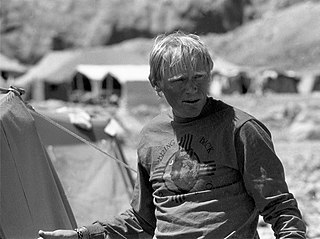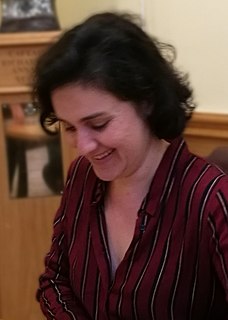A Quote by Doris Grumbach
The reason that extended solitude seemed so hard to endure was not that we missed others but that we began to wonder if we ourselves were present, because for so long our existence depended upon assurances from them.
Related Quotes
We see ourselves in other people’s eyes. It’s the nature of the human race; we are a species of reflection, hungry for it in every facet of our existence. Maybe that’s why vampires seem so monstrous to us—they cast no reflection. Parents, if they’re good ones, reflect the wonder of our existence and the success we can become. Friends, well chosen, show us pretty pictures of ourselves, and encourage us to grow into them. The Beast shows us the very worst in ourselves and makes us know it’s true .
I'm really glad that our young people missed the Depression and missed the great big war. But I do regret that they missed the leaders that I knew, leaders who told us when things were tough and that we'd have to sacrifice, and that these difficulties might last awhile. They didn't tell us things were hard for us because we were different, or isolated, or special interests. They brought us together and they gave us a sense of national purpose.
At the present moment in our culture this yearning for meaning and consciousness, this yearning to give and serve something higher than ourselves, is breaking through the hard crust of our widespread cultural materialism and pseudo-scientific underestimation of what a human being is meant to be together with an equally tragic overestimation of what we human beings are capable of in our present everyday state of being. The intensity of the present confusion about the nature and existence of God is a symptom of this yearning within the whole of our modern culture.
Anxieties about ourselves endure. If our proper study is indeed the study of humankind, then it has seemed-and still seems-to many that the study is dangerous. Perhaps we shall find out that we were not what we took ourselves to be. But if the historical development of science has indeed sometimes pricked our vanity, it has not plunged us into an abyss of immorality. Arguably, it has liberated us from misconceptions, and thereby aided us in our moral progress.
Extended families have never been the norm in America; the highest figure for extended-family households ever recorded in Americanhistory is 20 percent. Contrary to the popular myth that industrialization destroyed "traditional" extended families, this high point occurred between 1850 and 1885, during the most intensive period of early industrialization. Many of these extended families, and most "producing" families of the time, depended on the labor of children; they were held together by dire necessity and sometimes by brute force.
It is pleasant to be virtuous and good, because that is to excel many others; it is pleasant to grow better, because that is to excel ourselves; it is pleasant to mortify and subdue our lusts, because that is victory; it is pleasant to command our appetites and passions, and to keep them in due order within the bounds of reason and religion, because this is empire.
Living a long life, the conventional wisdom at the time said, depended to a great extent on who we were-that is, our genes. It depended on the decisions we made-on what we chose to eat, and how much we chose to exercise, and how effectively we were treated by the medical system. No one was used to thinking about health in terms of community.






































